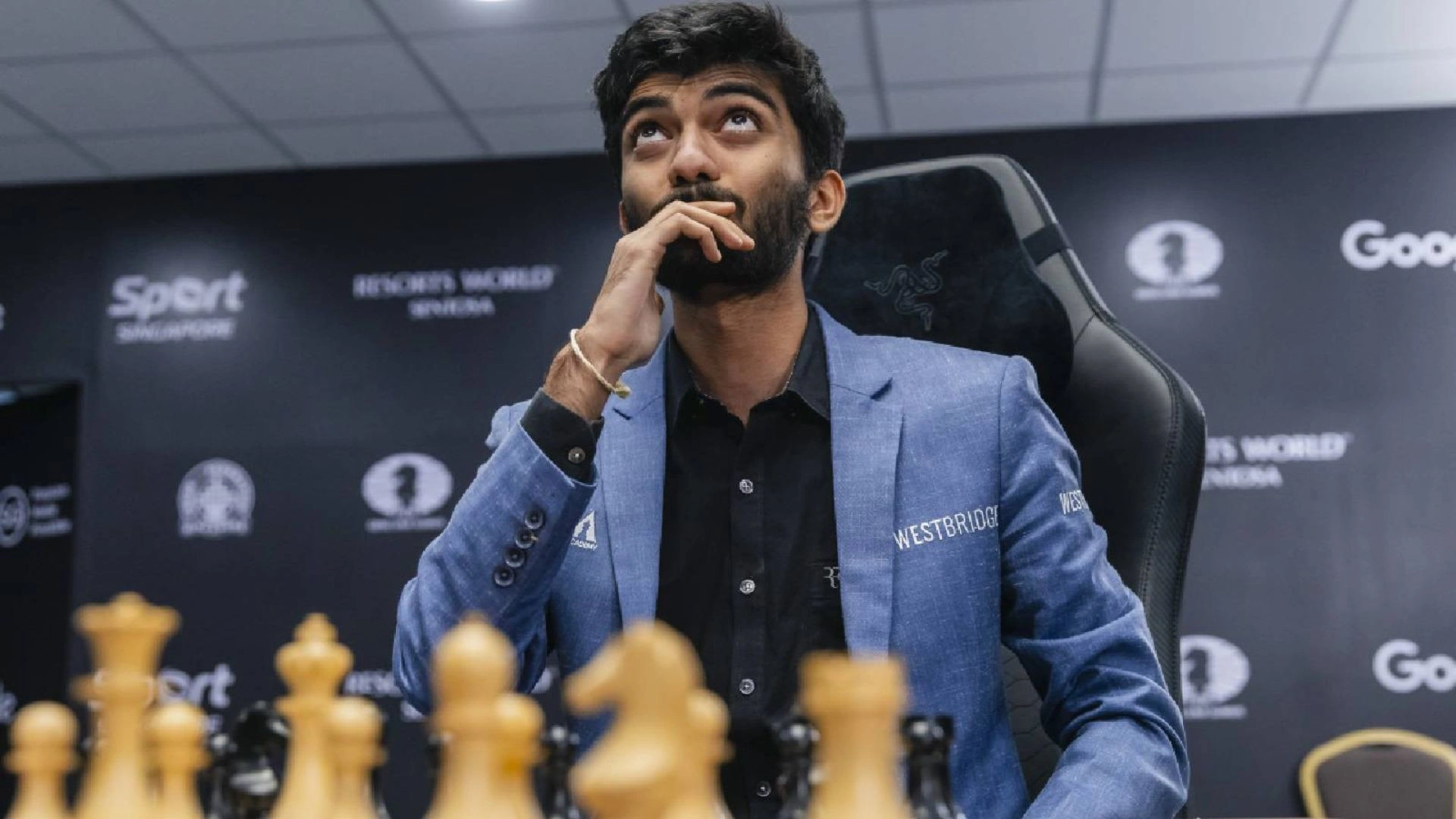As we prepare to present another Ballon d’Or, the most esteemed individual accolade in football, its significance appears to grow with each passing year. The legendary rivalry between Lionel Messi and Cristiano Ronaldo has undoubtedly fueled its rise, transforming an award once limited to European players into one fervently pursued by footballers worldwide.
Who Will Take Home the Trophy?
While anticipation builds around this year’s winner, the Ballon d’Or has also been a source of considerable debate. Critics often claim it has turned into a popularity contest, favoring star strikers over more deserving defenders. The voting patterns seem to fluctuate, with some years focusing on consistent performers, while others prioritize those who excel in crucial matches and tournaments.
Reflecting on 25 Years of Excellence
As we near the end of the first quarter-century of the new millennium, a retrospective on every Ballon d’Or awarded in the 21st century reveals a spectrum of talent and achievement. Rankings are bound to spark disagreement, so feel free to share your opinions in the comments below!
24. Robert Lewandowski ( 2020)

Robert Lewandowski’s name comes with an asterisk because, despite his exceptional performance, he did not actually receive the Ballon d’Or. The prolific Polish striker was the standout contender for the 2020 award after netting 55 goals in just 47 matches, helping Bayern Munich secure a treble. However, due to the Covid-19 pandemic, the organizers at France Football made the surprising decision not to announce a winner that year.
“For the first time since 1956, the Ballon d’Or will take a break,” stated Pascal Ferre, the magazine’s editor-in-chief. “There will be no edition in 2020, because, after careful consideration, we believe that not all conditions are met. We feel that such a unique year cannot and should not be treated as an ordinary one.”
This decision sparked considerable debate, with many believing Lewandowski would have been a deserving winner. In 2021, Lionel Messi remarked, “You deserve your Ballon d’Or. Last year, everyone agreed you were the big winner. I think France Football should give it to you. You should have it in your house.”
As of now, Lewandowski is still waiting for the recognition he earned.
23. Michael Owen (2001)

Rio Ferdinand recently noted that “primetime” Michael Owen doesn’t receive the respect he deserves, likely due to the injuries that plagued the former England forward in his later years. But was his 2001 Ballon d’Or win justified?
Many argue that the award should have gone to Raúl, who was at the height of his powers, evidenced by his career-best tally of 32 goals across all competitions, leading Real Madrid to the La Liga title and earning him the Pichichi trophy.
In comparison, Owen scored eight goals less for Liverpool during the 2000-01 season, with his hamstring issues already surfacing. However, he made headlines by dramatically turning the FA Cup final against Arsenal with a late double and following that up with a hat-trick for England in their historic 5-1 victory over Germany in Munich.
At that time, Owen was undeniably a media sensation, recognized as one of the most thrilling young attackers in football. His standout performances in those crucial matches likely played a significant role in securing him the Ballon d’Or.
22. Cristiano Ronaldo (2013)

The 2013 Ballon d’Or is widely regarded as the most controversial in the award’s history, marred by rumors and accusations about the voting process. Let’s focus on the facts.
Lionel Messi had an extraordinary year, scoring 60 goals in 50 matches and leading Barcelona to a La Liga title. In contrast, Cristiano Ronaldo netted 55 goals in 55 games for Real Madrid but did not win any silverware. Initially, as the voting deadline approached on November 15, Franck Ribery was the frontrunner, thanks to his crucial contributions to Bayern Munich’s treble-winning season.
However, in an unprecedented move, FIFA extended the voting period by two weeks due to a lack of “eligible voters.” Ultimately, Ronaldo finished first, narrowly edging out Messi and Ribery. Michel Platini, then-president of UEFA, humorously suggested that the extension was motivated by FIFA’s desire to “please” Ronaldo.
21. Andriy Shevchenko (2004)

The 2004 Ballon d’Or sparked debate over whether Thierry Henry was once again overlooked. After finishing second in 2003, Henry didn’t even make the podium this time, placing fourth despite his standout role in Arsenal’s ‘Invincibles’ season. Arsenal manager Arsène Wenger criticized the decision, noting Henry’s superior goals and assists compared to winner Andriy Shevchenko, who led AC Milan to a Serie A title. Henry’s lack of impact in the Champions League and France’s shock exit at the Euros hurt his candidacy. Deco also had a strong claim, having been instrumental in Porto’s treble and Portugal’s run to the European Championship final.
20. Ronaldo Nazario (2002)

The 2002 World Cup marked Ronaldo’s remarkable comeback. After a season plagued by injuries at Inter, where he managed only four goals in three matches, the Brazilian made his mark in the tournament by scoring eight goals, including two in the final, leading Brazil to its fifth title. This performance helped him overcome the disappointment of the 1998 final loss to France, making him the clear favorite for the Ballon d’Or. While teammate Roberto Carlos had a strong case after helping Real Madrid win the Champions League, the story of Ronaldo’s resurgence dominated the narrative that year.
19. Luis Figo (2000)

Luis Figo once humorously apologized to Francesco Totti for winning the 2000 Ballon d’Or, but it was Zinedine Zidane who had the most reason to feel aggrieved, finishing second. Despite a lackluster club season with Juventus, Zidane shone at Euro 2000, leading France to victory and earning the Player of the Tournament award.
Figo secured the Ballon d’Or with 16 more votes than Zidane, thanks to his consistent performances throughout the year. Although he didn’t win any trophies, the legendary winger excelled in La Liga with both Barcelona and Real Madrid—where he made a highly controversial transfer in the summer of 2000—and played a key role in Portugal’s semi-final run at the Euros, ultimately earning a spot on the Team of the Tournament alongside Zidane.
18. Pavel Nedved ( 2003)

Pavel Nedved’s Ballon d’Or win surprised even him. “For me, Thierry Henry is the best forward in the world now,” he remarked. “I am very happy. I did not think I would beat Thierry Henry, Paolo Maldini, or Zinedine Zidane.”
Maldini, widely regarded as one of the greatest defenders ever, had a strong case for the award after leading AC Milan to victory in the 2002-03 Champions League.
17. Ricardo Kaka ( 2007)

Kaka claimed the Ballon d’Or just before the era of Ronaldo and Messi’s dominance, with his victory largely attributed to his outstanding performances in the Champions League. While AC Milan didn’t have a standout season in Serie A, Kaka shone on the continental stage.
16. Lionel Messi (2010)
In 2010, Messi scored 60 goals for both club and country, but he was surprised to win his second consecutive Ballon d’Or. “It was already just great to be here next to my two friends,” he said, standing alongside Barcelona teammates Andrés Iniesta and Xavi, who finished second and third, respectively.
In Spain, many felt that Iniesta had been robbed, especially since he scored the winning goal in the World Cup final for La Roja, while Messi’s Argentina was eliminated by Germany in the quarter-finals. Meanwhile, in the Netherlands, supporters argued that Wesley Sneijder had been overlooked, as he played a crucial role in the Dutch team’s runner-up finish and was pivotal in Inter’s treble-winning campaign, which included defeating Barcelona in the Champions League.
15. Cristiano Ronaldo (2014)
Ronaldo’s third Ballon d’Or was unquestionable, especially after his extraordinary Champions League campaign. The Real Madrid star scored an incredible 17 goals in just 11 matches, leading Los Blancos to their long-awaited ‘La Decima’ by defeating city rivals Atletico in a thrilling final in Lisbon. Remarkably, he only failed to score in one game throughout the tournament.
This performance overshadowed his disappointing outing at the 2014 World Cup, where Portugal faced an early group-stage exit. Nonetheless, with 51 goals in 47 appearances for Madrid that season, his club achievements solidified his claim to the award.
14. Lionel Messi (2019)
Upon securing his record-breaking sixth Ballon d’Or, Lionel Messi remarked, “I am very lucky.” While he meant this broadly, many believed it also applied to his narrow victory in the France Football voting. He won by just seven points over Virgil van Dijk, the elegant Dutch center-back who played a crucial role in Liverpool’s Champions League triumph.
“I’m proud of what I’ve achieved,” the Dutchman said. “It was amazing. But there are a couple of players like [Messi] who are fantastic. It’s going to be tough [to win the award] when these guys are around.”
13. Cristiano Ronaldo (2017)
In 2017, there were indications that Ronaldo’s exceptional goal-scoring ability was beginning to decline, yet he rose to the occasion when it mattered most. He netted five times in the final three matches of the La Liga season, helping Real Madrid secure their first Spanish title in five years. After a goal drought of six games in the Champions League, he exploded with 10 goals against Bayern Munich, Atletico Madrid, and Juventus, leading his team to retain their European title. It was clear that he was the ultimate ‘big-game’ player, and as he tied Messi with five Ballon d’Ors, Brazilian legend Pele remarked, “I would have loved to play alongside you!”
12. Lionel Messi (2021)
Robert Lewandowski was unfairly denied the Ballon d’Or in 2020, but many wondered if he had been robbed again in 2021. The Polish striker had an extraordinary season, setting a Bundesliga record with 41 goals in just 29 games for Bayern Munich. However, reminiscent of Thierry Henry’s experience in 2004, Lewandowski’s failure to win was partly due to his team’s shortcomings in both the Champions League and the European Championship.






















